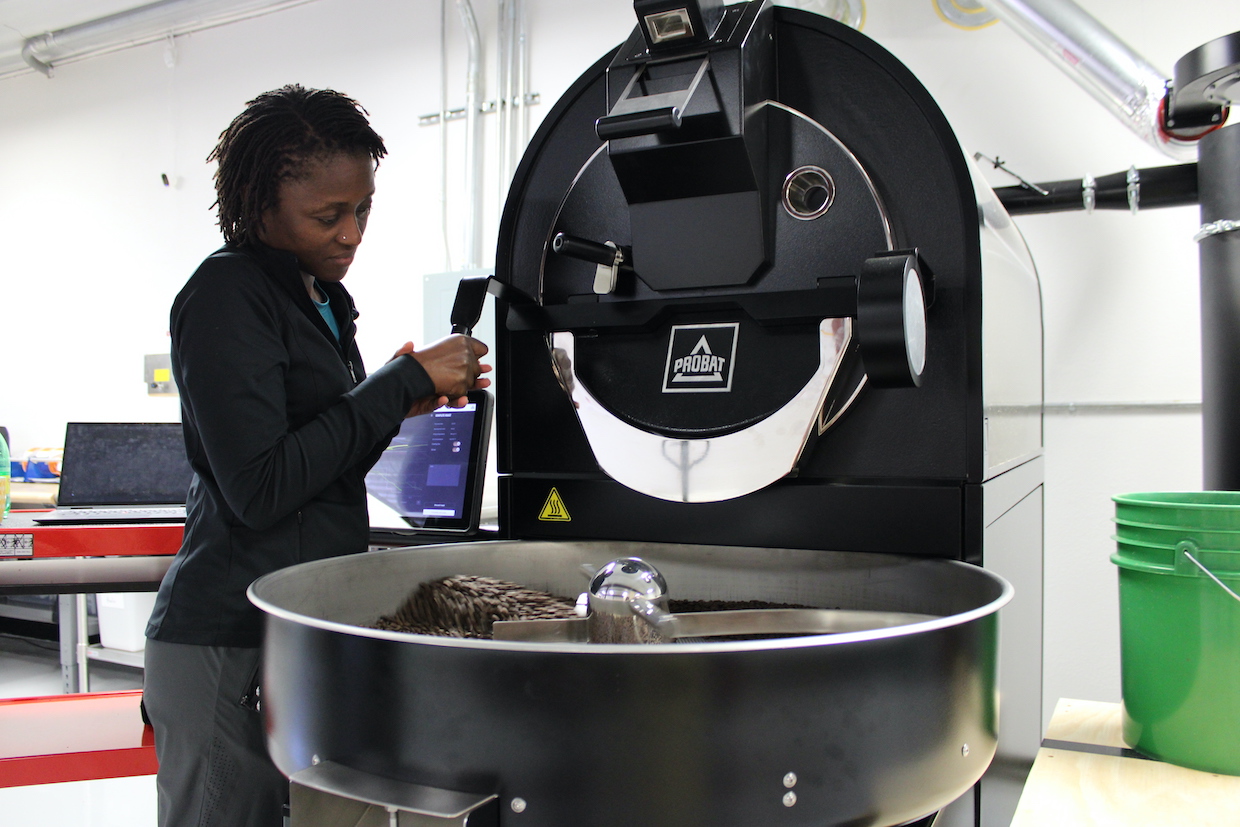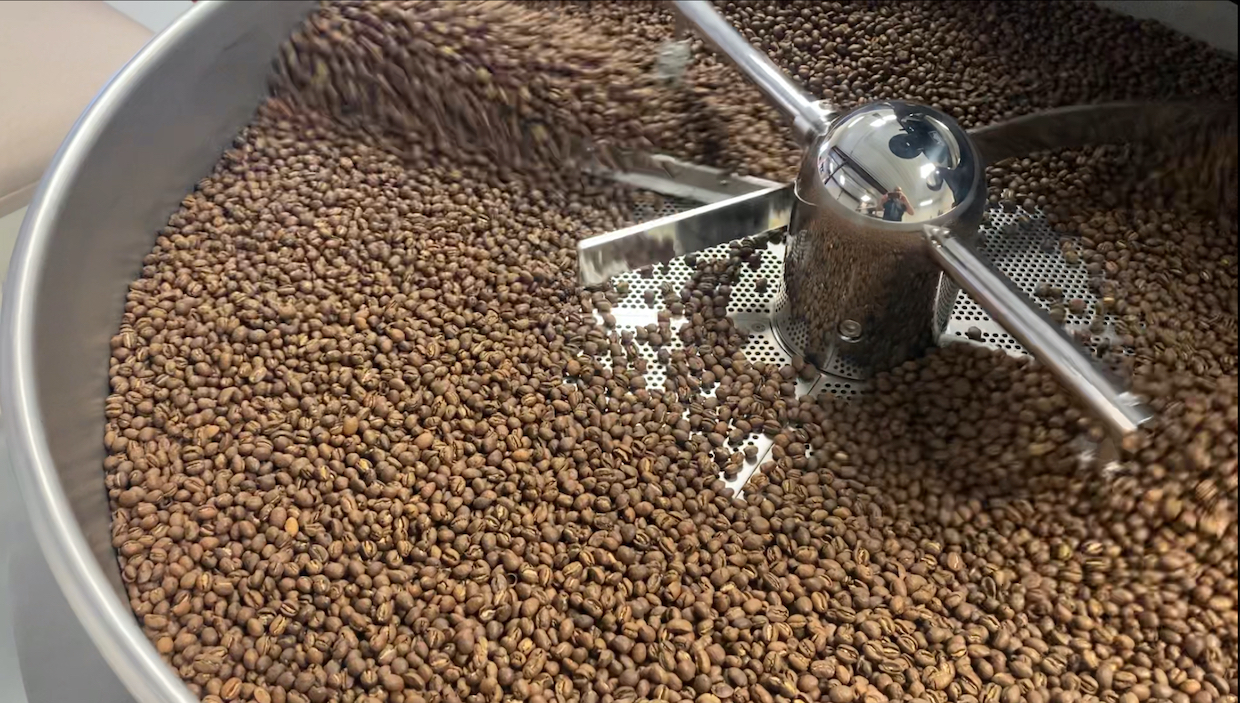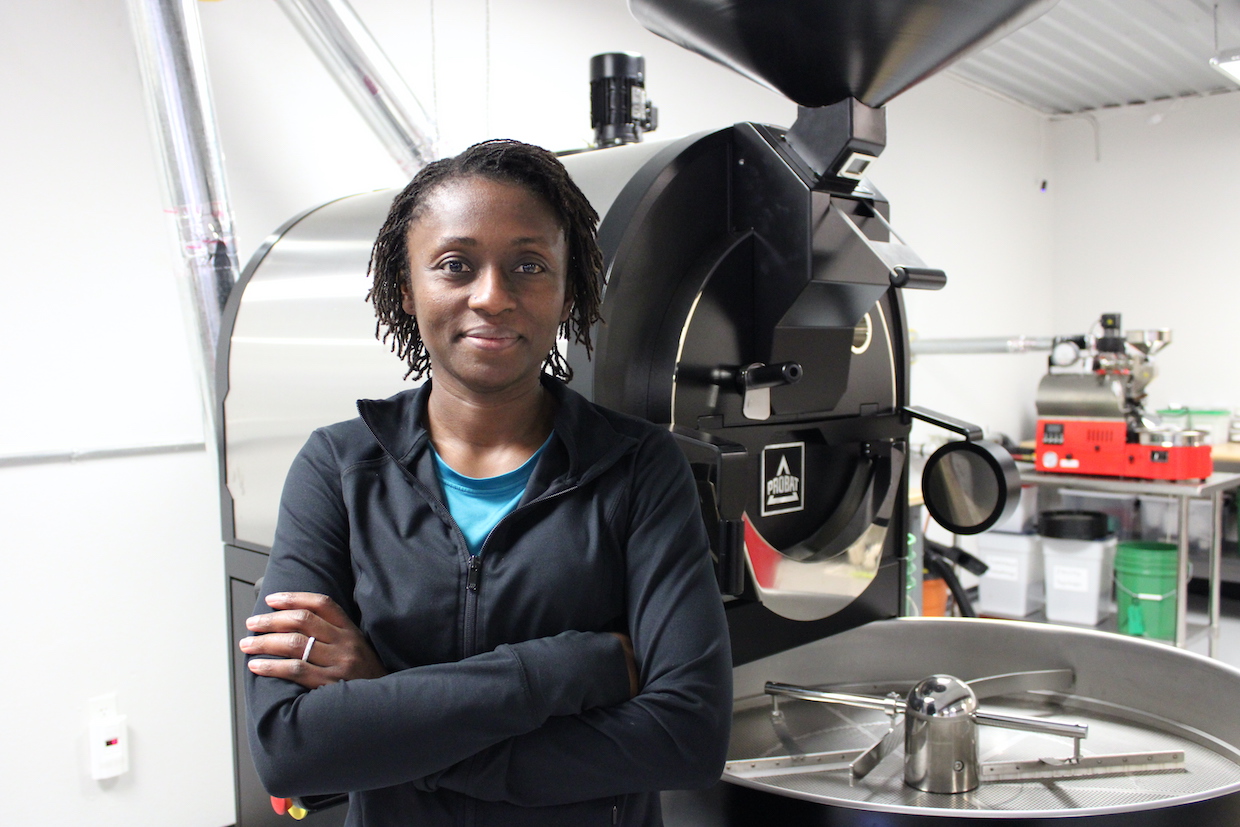A studious new roasting company in Georgetown, Texas, called Katï Coffee is opening its doors for tours, tastings and more. Launched last summer just north of Austin, the immigrant-owned roastery is proving that good things come in threes.
A Roest sample roaster, an Arc 800 small-batch roaster and a Probat P12 full-production roaster are the three machines at the heart of the factory, where coffees come predominantly from importers Genuine Origin, Cafe Imports and Sucafina.
Meanwhile, Katï Coffee Founder Mirian Diop seeks to transform those coffees into three types of products.
“We classify our coffees into three buckets: Delicate coffees, nuanced coffees, and resolute or bold coffees,” Diop told Daily Coffee News. “So I’m always looking to see if I can get beans that allow me to showcase those characteristics that we have.”
Aside from sensory aspects, Katï maintains three core tenets when sourcing greens, including consistency of quality between green samples and full shipments, high standards for transparency and progressive practices among importers, and the assurance of equitable prices for producers.
“It’s important to have beans that are described as ‘fair trade’ beans,” Diop said. “As someone who takes pride in being fair in general in all of my dealings, all of my exchanges with others, it also matters in the same way with purchasing coffee beans from producers.”
Mirian Diop was raised in Ghana, the middle of three children. While her older brother also now lives in the United States, Diop visits her parents and younger brother in Ghana roughly every other year. The name Katï comes from the word meaning “knowledge” or “wisdom” in Lelemi, her parents’ native language.
While African coffees were at one time her favorites, along with certain “appropriately roasted” South American coffees, her preferences have expanded to all over the world.
“If you had asked me five years ago, I’d have definitely said, yeah, absolutely, East Africa, represent!” said Diop. “But the more I’ve exposed myself to coffees from other regions, I’ve come to enjoy them all broadly quite well. And it all comes down to how you choose to brew it.”
Diop moved to the United States on her 19th birthday to attend Tufts University, then went on to earn a PhD in chemical engineering at Northwestern University. That led to work at ExxonMobil, where after 10 years she held the role of global financial planning manager.
“Ultimately I decided I really wanted to do something that was more community-focused and community-engaged, which is how I ended up in coffee,” she said.
With her scientific background, Diop was a quick study in the fundamentals of roasting coffee.
“As a grad student, I actually designed and co-taught a heat transfer class for undergrads,” said Diop. “Roasting is a lot of heat transfer and understanding how you are putting heat into the system and what it does to the beans, so a lot of that came fairly easy to me.”
With Katï Coffee now firmly established, Diop’s efforts towards community outreach are naturally threefold.
“Although I don’t do it intentionally or limit myself to it, I find that I’m drawn to thinking in threes and managing my workspace the same way,” said Diop. “It’s certainly cleaner and easier to navigate and remember. Two doesn’t give me enough room for flexibility and creativity, too few degrees of freedom. Four or more is often too cumbersome, too many possible interpretations, permutations or combinations. One might say it’s a force of habit, I guess.”
With a passion for education and research, Diop created the Katï Educational Scholarship Fund at Southwestern University in Georgetown. A percentage of sales of a blend called Grounds for Grace also goes to Brookwood in Georgetown (BiG), an organization that supports adults with developmental disabilities with training, employment opportunities and housing.
Thirdly, inspired by her grandparents’ service in World War II, Diop also devotes a portion of several Katï blends sales to first responders, including police and firefighter groups.
“It’s one thing to establish the collaboration. It’s something else to actually grow it and nurture it and see it bloom over time,” said Diop. “That’s very much what we’re focused on, continuing to engage with the community that we have here. Because ultimately, our goal is to give back. The more we’re able to grow, the more we’re able to do that.”
Comments? Questions? News to share? Contact DCN’s editors here. For all the latest coffee industry news, subscribe to the DCN newsletter.
Related Posts
Howard Bryman
Howard Bryman is the associate editor of Daily Coffee News by Roast Magazine. He is based in Portland, Oregon.









Comment